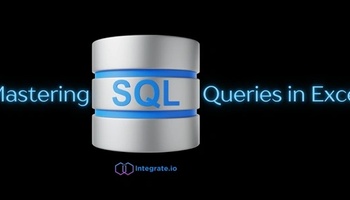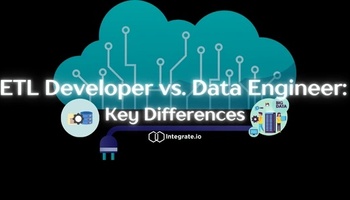Enterprise resource planning, or ERP, the software helps companies manage their day-to-day activities in most departments. It offers organization and compliance features that streamline the process and make it user-friendly.
ERP software shoppers probably know they need top-quality ERP software, but how do they know how to choose the right one for their needs?
What Does ERP Software Do?
ERP software features integrated applications designed to host various task management features such as the following.
- Payroll
- Accounting
- Production capacity
- Database management
- Business resource tracking
These are just a few examples of some functions this software offers to users. For many, it represents the best way to stay organized and seamlessly customize their experience with business processes.
Users can also control and monitor various activities with the user interface.
ERP software allows companies to stay compliant with their data storage and enable workflow automation and insights to help tailor approaches in real-time.
What Are the Business Needs?
The first thing to determine before shopping for ERP software is the overall business needs. What does the software need to manage? What size business is it, and what is the projected growth rate in the next few years?
Is ERP needed to manage a large inventory, or is it intended to manage more minor things like database management for a smaller business?
These questions will help create an outline of criteria that provides a match with the suitable options. Be sure the software can handle the company's goals and objectives with ease and that users can navigate the interface without complications.
Company Size
The size of the company is one of the most significant factors to consider when shopping for ERP software in order to choose the right product for the rate of growth.
Keep in mind that large companies require multiple integrations for many departments, so features and flexibility are both must-haves.
As time passes, the software must accommodate fluctuations and expansion along the way. Consider selecting EPR software that handles medium-size to large businesses if the company is rapidly growing or changing to meet market demands.
Get Input from Departments
A great way to determine if the ERP software will fulfill the needs of each department adequately is to speak with the directors or executives of each department in the company.
Find out which features are essential and which are optional. This input helps guide the search and weed out those without the capabilities necessary to handle department needs.
It's also beneficial to speak with middle management for further insight. Gathering information about how business flow happens and what makes it easier for everyone is the key to finding a solution that matches current and future requirements.
Deployment Methods
Not every company wants or needs the same deployment method. Some require an on-premises deployment method that uses the company server for local access. This type of deployment is usually a fit for SMBs.
There's also a hybrid deployment option that uses both servers and cloud-based deployment. Depending on your business model, this might be the ideal solution.
Cloud-based deployment offers the highest level of security and access. Many features make using this type of deployment easy for remote workers and easily limit access and permissions.
What's the Company Budget?
Determine your current budget for ERP software and make the best selection based on that criteria. Outlining a budget first before beginning the selection process can be one of the best ways to figure out which options are worth considering.
Not all ERP software has the same capabilities or costs. Figure out which products match your budget, and you'll have a better understanding of what's available in your price range.
NetSuite ERP for Business
One of the top-performing ERP software options is NetSuite. This software is a good fit for companies of all sizes.
It has a range of plans to fit most budgets and features to support enterprise companies with large quantities of data and compliance needs. Some features to expect from NetSuite include the following.
- Daily cash balance
- Key performance indicators (KPIs)
- Spreadsheet for financials
- Inventory access
- Sales information
NetSuite also offers a free product tour to provide potential users with insight and details about how they can benefit from integrating their ERP software into their business process.
How Integrate.io Can Help
Integrate.io is a top-performing ETL company with many integrations and solutions for keeping business processes flowing efficiently with transparency and security features.
They make working together with a commonsense solution to modern business. For example, Integrate.io can allow you to integrate NetSuite with Oracle and smoothly and securely transfer data and provide multiple integrations and features.
Integrate.io offers secure ETL from NetSuite to supply a better user experience that provides convenience and security for companies in various industries.
Contact Integrate.io today and get started with a 14-day demo of their service to determine if it's a good fit for your company's needs.









